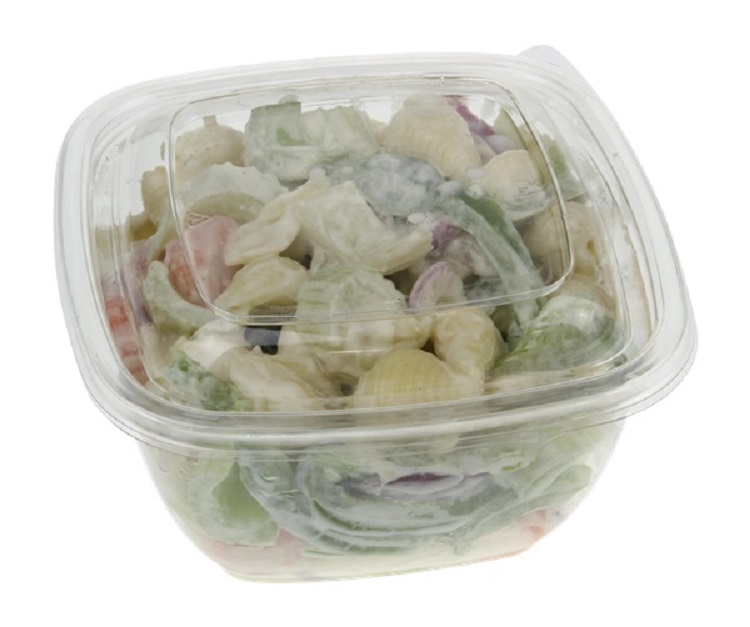

On Tuesday Hy-Vee Inc. recalled its spring pasta salad because it might be contaminated with Salmonella bacteria, according to a statement issued by the U.S. Centers for Disease Control and Prevention (CDC).
Consumers are urged to check their refridgerators for the recalled pasta salad and either throw it away or return it to the store for a refund.
Twenty-one cases in several Midwestern states have been linked to the product, according to the U.S. Centers for Disease Control and Prevention (CDC).
The Hy-Vee spring pasta salad includes shell pasta, carrots, celery, cucumbers, green pepper, onion and mayonnaise. The recalled product was sold in 1-pound (16 oz.) and 3-pound (48 oz.) plastic containers, or it might have been scooped at the deli counter into clear plastic containers, the CDC said.
The recalled pasta salad was sold in all Hy-Vee grocery stores in Iowa as well as in Kansas, Minnesota, Missouri, Nebraska, South Dakota and Wisconsin.
The expiration dates for the recalled pasta salad range from June 22, 2018, to August 3, 2018.
Consumers myt return the recalled spring pasta salad to the store for a refund or throw it away. Even if some of it was eaten and no one got sick, do not eat it, the CDC advised.
If the recalled pasta salad is stored in another container, consumers should throw the pasta salad away and thoroughly wash the container with warm, soapy water before using it again in order to remove harmful germs that could contaminate other food.
Consumers who think they got sick from eating recalled Hy-Vee spring pasta salad should contact their healthcare providers.
Restaurants and retailers should not serve or sell recalled Hy-Vee spring pasta salad.
Salmonella poisoning is often linked to contaminated water or foods, especially meat, poultry and eggs. Salmonella bacteria are usually transmitted to humans by eating foods contaminated with animal feces.
Every year, approximately 40,000 cases of salmonellosis are reported in the U.S. Because many milder cases are not diagnosed or reported, the actual number of infections might be 30 or more times greater, according to research.
For more information, visit the CDC website.















